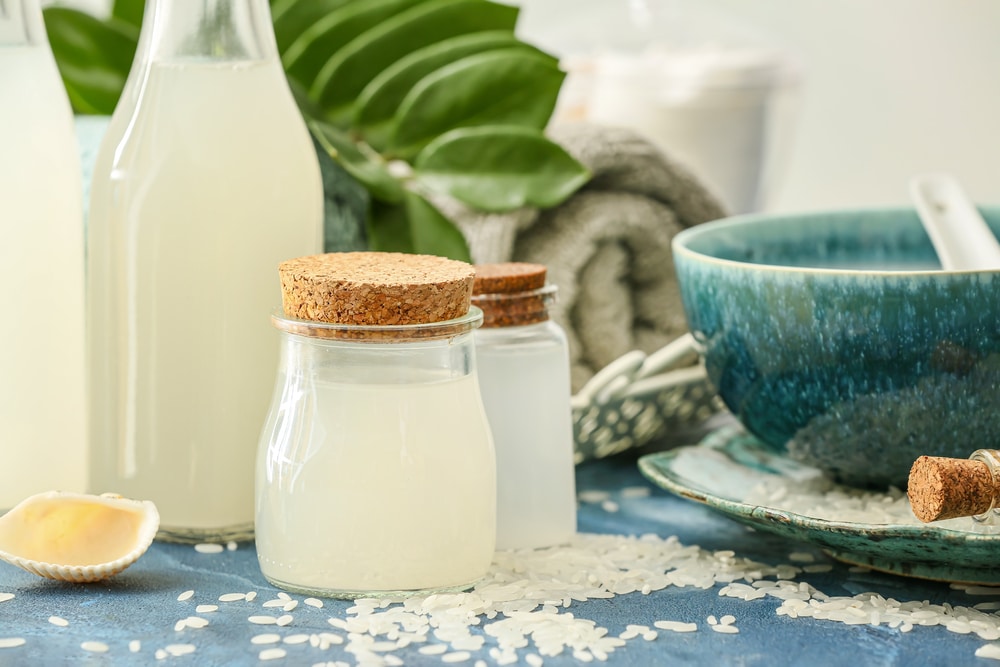It’s no secret that indoor plants have been booming in popularity over the last few years. With this surge of interest has come a new wave of novel plant care techniques.
Among these practices is the use of rice water for watering houseplants.
While this method has gained some traction for its potential benefits, a closer examination reveals that the potential downsides may outweigh the advantages.
This article aims to offer a comprehensive view of the implications of using rice water for indoor plant care.
Unraveling the Composition of Rice Water
Rice water is the milky by-product that results from washing or boiling rice. It contains several nutrients, including:
- Vitamin B (predominantly B1, Thiamine, and B3, Niacin)
- Vitamin E
- Minerals such as potassium, magnesium, and zinc
- Proteins and starches
At first glance, these constituents seem beneficial for plants, but their practical impact may not be as significant as one might think.
Potential Benefits of Rice Water for Plants
While rice water does contain nutrients that could theoretically be useful to plants, the effectiveness of these nutrients when delivered through rice water is under debate.
The Nutrient Supplement: A Limited Boost
While rice water contains a variety of nutrients, the concentrations are low, which limits their potential benefits:
- Vitamin B1 (Thiamine) and B3 (Niacin): These vitamins are involved in plant metabolism, but are already present in most soils and produced by the plant itself. The additional contribution from rice water is unlikely to make a significant impact.
- Minerals: While potassium, magnesium, and zinc are essential plant nutrients, the quantity present in rice water is minimal compared to what’s available in a good quality potting mix or standard fertilizer.
The Eco-friendly Perception: A Half Picture
The practice of using rice water is often touted as eco-friendly since it involves repurposing kitchen waste. However, this argument is only valid if the benefits to the plants are significant enough to justify its use, which may not necessarily be the case.
Assessing the Potential Risks of Rice Water for Plants
Alongside the possible benefits, there are considerable risks involved in using rice water for houseplants. Here are the key points of concern:
Over-fertilization
Even though rice water is a weak nutrient source, overuse could lead to over-fertilization, leading to plant stress and damage.
Accumulation of Harmful Substances
Rice water may contain traces of arsenic, a toxic substance that can build up in the soil over time. Regular use of rice water could lead to increased arsenic levels in your plant’s soil, potentially causing long-term harm.
Fungal and Bacterial Growth
The starchy content of rice water could potentially foster the growth of harmful fungi and bacteria in the plant’s soil. These pathogens could infect the plant, leading to various diseases and, in severe cases, plant death.
Rice Water Use: A Judicious Approach
Considering the marginal benefits and the potential risks, the use of rice water for houseplants might not be as effective or efficient as it seems. Here are some points to reflect upon:
- The Need for Dilution: To prevent over-fertilization, rice water should be diluted with regular water. This adds an extra layer to your plant care routine.
- Limited Use Recommended: To minimize risks of arsenic accumulation and pathogen growth, rice water should be used sparingly, limiting its potential benefits.
- Alternative Fertilizers: Several other organic and inorganic fertilizers provide a balanced nutrient profile more efficiently, without the risk of harmful substance accumulation or pathogen growth.
- Rice Washing Procedure: To reduce arsenic content, rice should be thoroughly rinsed before soaking or cooking. This adds another step to the process, making it more labor-intensive.
Conclusion
While the concept of using rice water for houseplants might appear beneficial and eco-friendly at first, a comprehensive evaluation suggests that the potential downsides may overshadow the possible advantages.
The nutrient content in rice water, while present, is relatively low, and there are substantial risks such as over-fertilization, arsenic buildup, and possible pathogen growth. Given the readily available alternatives that offer a more balanced and efficient nutrient supply, the effort and potential risks associated with using rice water might not be justified.
As always, any new practice should be thoroughly evaluated before being incorporated into your plant care routine, with the health and well-being of your plants as the top priority.
Leave a comment below and let me know what you think about using rice water for plants!


Ok, I do not eat white rice. I would if I was starving but not in my healthy diet. Brown rice has those nutrients but white rice is void of ANY nutritional value whatsoever. I wouldn’t feed it to my plants because it would take to much work and it would be useless.